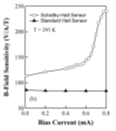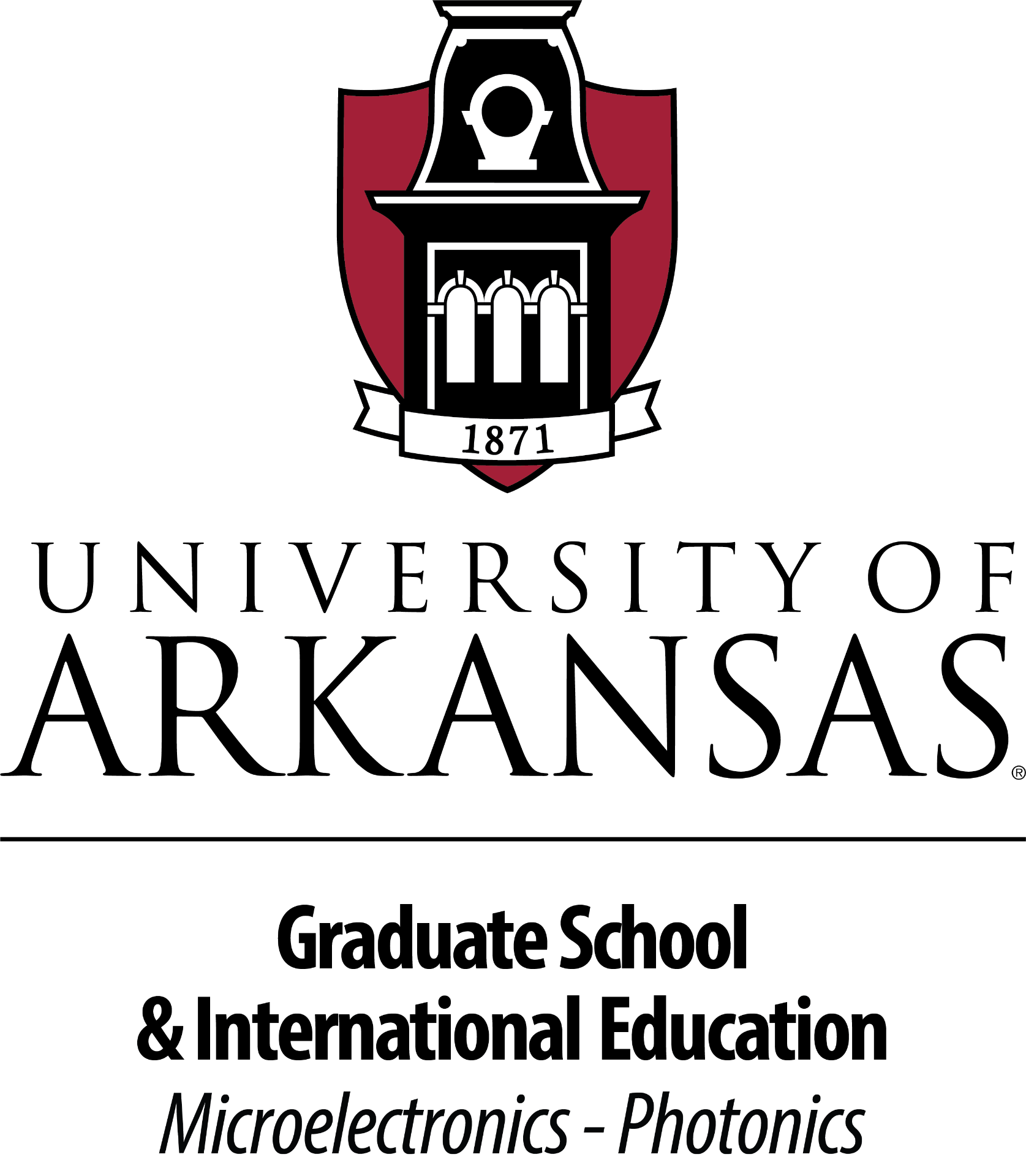Development of Micro-Hall Devices for Current Sensing
Student: Thomas White
Degree: Ph.D., May 2020
Major Professor: Dr. Alan Mantooth and Dr. Greg Salamo
Research Area(s):
Microelectronics
Physical & Chemical Sensors
Background/Relevance
- Improve power inverter efficiency by using passive simultaneous current and temperature sensing devices.
Innovation
- Develop a method for simultaneous current and temperature sensing without amplification.
- Increase sensor’s sensitivity to current and temperature while maintaining ability to operate in harsh environments.

Approach
- Explore wide bandgap material structures in order to achieve a current and temperature sensor capable of operating at temperatures grater than 200 °C.
- Research and install growth parameters to fabricate GaN HEMT structures by MBE.
- Fabricate and characterize micro-Hall current and temperature sensors.
- Design new die layouts as well as new packaging solutions.

Key Results
- Improved B-Field sensitivity by 3x (see graph) when compared to highest published sensitivity for GaN-based sensors.
- Achieved a linear response to magnetic field in a wide temperature range.
- Measured a current sensitivity of 10 mV/A with no amplification circuitry.
- Simultaneously measured current and temperature with a single Hall cell
- Demonstrated stability in both current and temperature measurements across the temperature range of -50 – 250 °C.

Conclusions
- The wide bandgap AlGaN/GaN structure was stable across the temperature range of -50 – 250 °C. No ionization impact phenomena was observed in the AlGaN/GaN devices.
- A Schottky biased contact improved the B-field sensitivity of the GaN-based devices, which measured 5 A of current passing through a trace. The 10 mV/A sensitivity and 5 A minimum current detection limit was measured at a trace-sensor distance of 3 mm.
- The sensor’s magnetic and temperature sensitivities was found to be as high as 240 V/A/T (at RT) and 1.7 mV/°C respectively.
